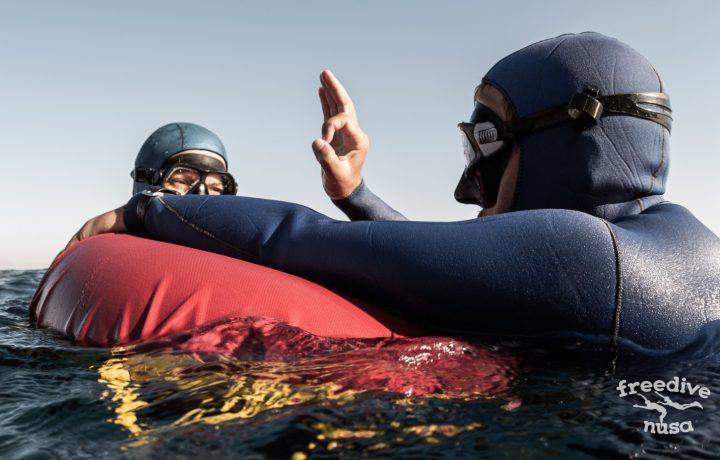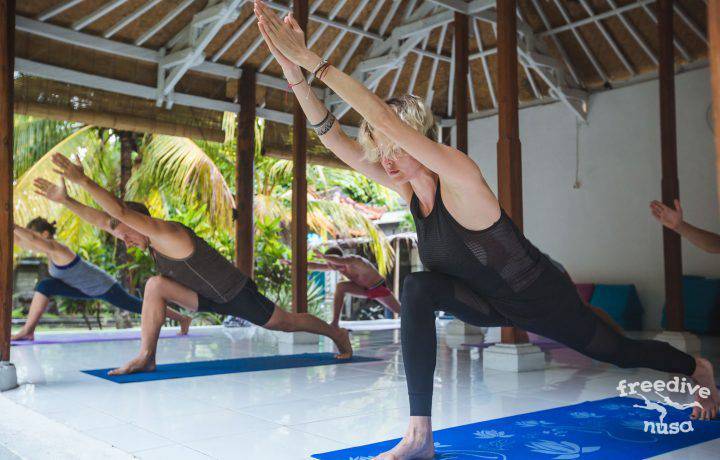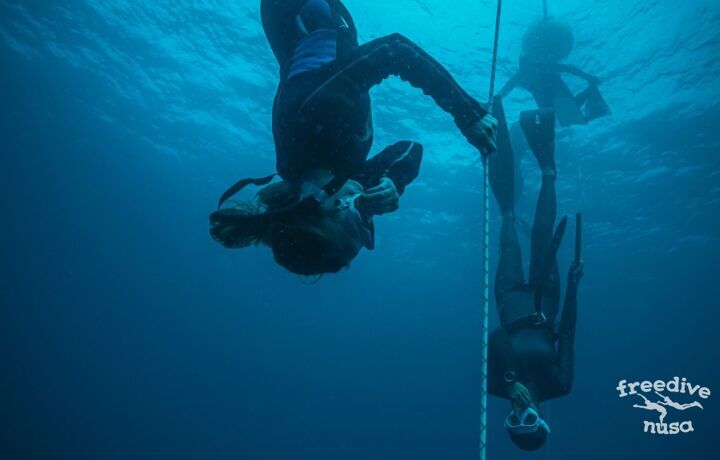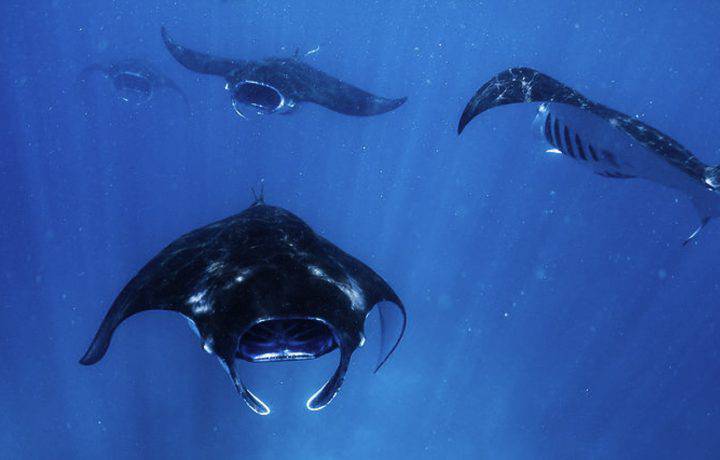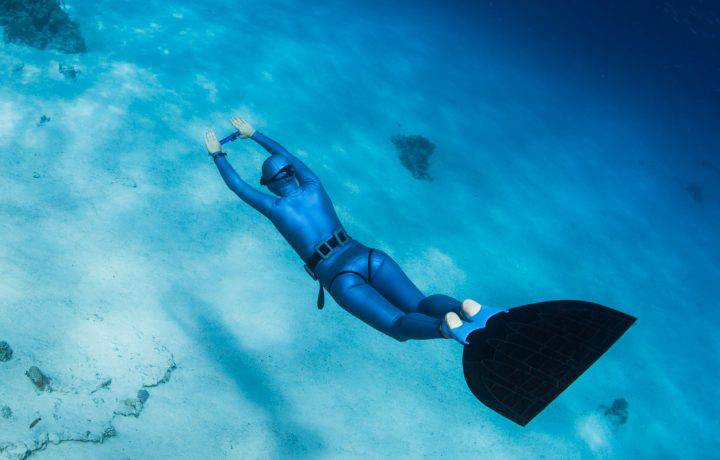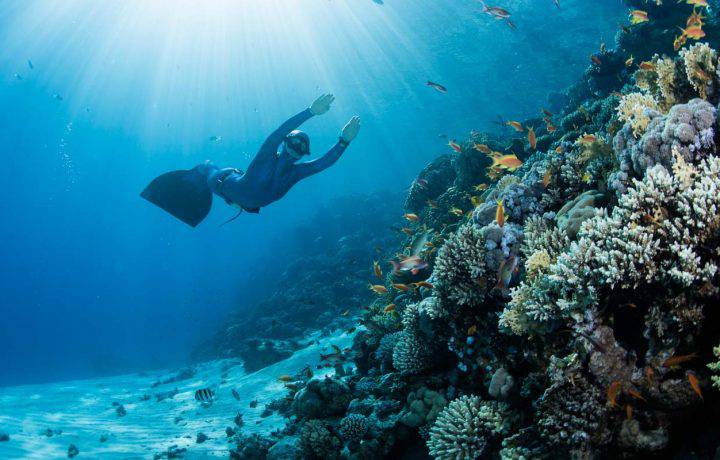There are lots of discussions about providing safety in freediving competitions, but talking about proper safety during training is of paramount importance.
Of course, we may not dive to the same depths as the top freediving athletes, but this does not exclude the possibility of a blackout or samba, which means applying all the necessary measures that make diving not only as pleasant as possible, but also safe. How to freedive safely should always be the main concern for every freediver. Unfortunately, it’s often not taken seriously enough, especially by beginners in the freediving world.
There are 13 important tips below which will help you to avoid common mistakes and improve the safety of your workouts.
1. Never dive alone
This is the most important rule of freediving, which is constantly raised at every freediving course regardless of your level. Always choose an experienced partner, ideally who match your level or even can be on higher level. Your buddy must know the principles of safety, how to react if samba or blackout occurs and how to provide the first aid.
Always remember and practice rescue periodically during your trainings.

2. Never force your equalization
Please don’t test the strength of your eardrum, because eardrums still will come in handy in life. Remember to make an equalization on the surface before diving. When immersed, perform equalization constantly and regularly. Don’t wait for any discomfort or pain, because any pain is a cause of micro trauma for the eardrum.
If it’s not possible to immediately equalize the pressure then stop diving. The idea is that the goal is close and there are only 2-3 meters left to the end of the rope is deceptive and very dangerous. Forcing can easily damage the eardrum.
It will be especially offensive if you came for a week or two to dive somewhere in a remote place on our planet and planned to spend this time as efficiently and intensively as possible. One unsuccessful “booster” of the equalization can jeopardize the entire subsequent freedive vacation.
3. Choose the right amount of weights
 With a lot of weights, it’s easier to start diving, because free fall begins earlier. However please don’t forget that later you will have to come up on the surface. Overloading will lead to increased energy consumption during ascent and the inability to completely relax on the surface. In addition, going deep too fast can cause pressure equalization problems.
With a lot of weights, it’s easier to start diving, because free fall begins earlier. However please don’t forget that later you will have to come up on the surface. Overloading will lead to increased energy consumption during ascent and the inability to completely relax on the surface. In addition, going deep too fast can cause pressure equalization problems.
Weights must be selected the way so that you have neutral buoyancy at a depth of between 10 and 15 meters. Always check your buoyancy when you haven’t dived for a long time, dive in new equipment (the thickness of the wetsuit affects buoyancy) or the new sea (buoyancy also depends on the salinity of the water).
4. Hydration and nutrition for freedivers
It is not recommended to dive within 3-4 hours after a full meal and 1-2 hours after a light snack. The digestion process requires an additional blood flow to the stomach, which reduces its rush to other vital organs and significantly reduces the duration of the breath hold.
Lungs ventilation, prolonged exposure to water, and immersed diuresis during freediving can lead to dehydration of the freediver. Dehydration makes it difficult to equalise the pressure, reduces the ability of the blood to carry oxygen, reduces the possibility of holding your breath and increases the risk of blackout. Therefore, during training there should always be a supply of water in the buoy and try to drink it after each dive. Freedivers should love water not only outside, but inside themselves as well.
5. Make a dive plan and always keep a communication with your buddy
Make a diving plan with your buddy before each training taking into account all the conditions of the upcoming diving (weather, waves, currents, visibility, etc.).
Each of the freedivers should know what the partner is going to do (the number of warm-up dives, dives to the maximum depth, etc.).
6. Never exhale under water or exhale too sharply on the surface after coming back from depth
When exhaling under water you lose, firstly, precious oxygen, and secondly, reduce your buoyancy, which requires more effort to rise to the surface. In addition, exhaling at a depth can result in lung barotrauma.
Always perform correct recovery breathing on the surface. Sudden exhalation and improper breathing on the surface can provoke a samba or blackout. Always remind your buddy of the need to breathe correctly after surfacing if you see that he/she forgets to do it. Proper recovery breathing after diving should be your automatic reflex.
7. You need always use a bright buoy to mark the dive site and the rope when diving deep
 The buoy isn’t only a platform for recreation and a place for fastening the cable, but also is a surface marker that makes freedivers noticeable for boats. Places with intense boat traffic are the really dangerous for the freediver. Never move more than 2-3 meters from the buoy.
The buoy isn’t only a platform for recreation and a place for fastening the cable, but also is a surface marker that makes freedivers noticeable for boats. Places with intense boat traffic are the really dangerous for the freediver. Never move more than 2-3 meters from the buoy.
Develop the habit of surfacing directly on the buoy and putting your hands on it. This will give you additional support and help your buddy to support you in case of samba.
Please don’t move away from the rope more than 2 meters while ascending and descending. When you are going to dive deeper than 20 meters or have poor visibility or strong currents always use a safety lanyard.
8. Observe the required surface rest interval
Always maintain the correct surface interval to restore the balance of gases in the body after immersion.
With dives up to 40 meters your rest time should be at least 3 times longer than the total diving time.
With deeper dives to calculate the rest time you need to divide your maximum diving depth by 5. So in case you dived to 50 meters this means that you need to rest for at least 10 minutes. At this time, you can’t fulfill the role of the safety diver as well.
If you are going to dive to your maximum depth, please don’t perform more than 2 maximum dives per one training session.
In case of diving deeper than 50 meters then one dive per day is permissible to avoid the risk of decompression sickness.
9. Never hyperventilate!
Unfortunately, even after taking freediving courses many beginner freedivers don’t fully understand what hyperventilation is.
This is not some kind of special quick breathing, although it is also hyperventilation. Hyperventilation is ANY type of breathing when you breathe more than what your body needs at that moment. This is any way to increase lung ventilation in which you exceed your natural minute breathing capacity.
Hyperventilation has many disadvantages for freedivers and you probably were told about it in the first course of freediving, right?
The main goal before diving is to relax as much as possible. Breathe naturally, calmly and relaxed. Imagine your condition as if you are going to bed. You can lengthen the exhale a little, this helps to relax more and slow down the heart rate. However, don’t overdo it with an exhalation lengthening, because it should be as comfortable and natural as possible for you. Otherwise you can get the opposite effect – hypoventilation. Each freediver finds his own ideal breathing rhythm with an experience.
Remember also not to do more than 2-3 final deep full breaths immediately before diving.
10. Don’t dive on a full exhale
Full exhalation diving is a training technique used by very advanced freedivers. Such freediving techniques should be approached with extreme caution, having a high level of fitness and extensive experience of diving in depth, as well as a very elastic chest, since diving on an exhale greatly increases the risk of a lung squeeze.
11. Never force reaching new depths or sharply increase breath hold time
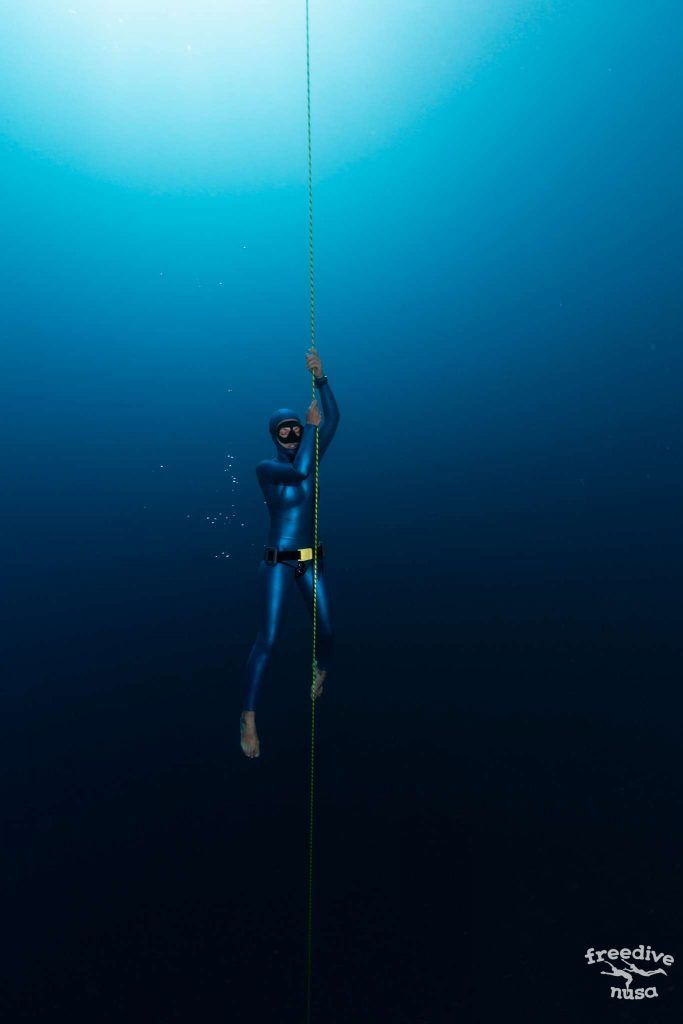 Listen to yourself and your body! Never force the achievement of a new depth or a longer breath hold time. Our body has enormous potential for adaptation in the aquatic environment, but it takes some time.
Listen to yourself and your body! Never force the achievement of a new depth or a longer breath hold time. Our body has enormous potential for adaptation in the aquatic environment, but it takes some time.
Forcing new depths and breath hold time can lead to both physical injuries and the emergence of a psychological barrier after which it may take a long time to recover and bring oneself to a normal state.
Don’t try to build up meters and minutes every day. It is very important to be able to listen to yourself and your feelings and depending on this build your trainings. Freediver is his own psychotherapist, his own trainer and director. Freediving is a wonderful tool for developing a sense of your body and mind.
Avoid diving if you are cold or tired. Cold and fatigue have a very negative effect on breath hold, reducing the ability of self-control and increasing the risk of blackout. Don’t force yourself if you feel tired or cold. There will be a new day for new achievements!
12. Never continue diving in case of samba, blackout or lungs squeeze
In the case of samba (loss of motor control), blackout or even a suspicion of lung squeeze it is necessary to immediately stop diving for at least a day, depending on the severity of the incident.
Always consider the time required for the physiological adaptation of the body to the diving process as well as for recovery from trainings.
13. Keep the correct mental attitude
Avoid negative thoughts before and during the dive. The right positive psychological attitude in freediving is more than half of the success of a good dive.
The training of control and management of consciousness is often necessary even more than the training of the body. The ability to control your actions in extreme situations and prevent panic is one of the most important tasks of a freediver.
The last but not least is always come back from the depths with a smile! Remember that pleasure, joy and comfort are what we freedive for. The numbers on your dive computer don’t matter if you aren’t enjoying the process. The best dive is not the deepest one but the one you loved!
Take care and enjoy your dives!
On our website you can sign up for freediving courses of different levels: Freediving Beginner Course – Level 1, Advanced Freediving Course – Level 2 and Deep Diving Course – Level 3

